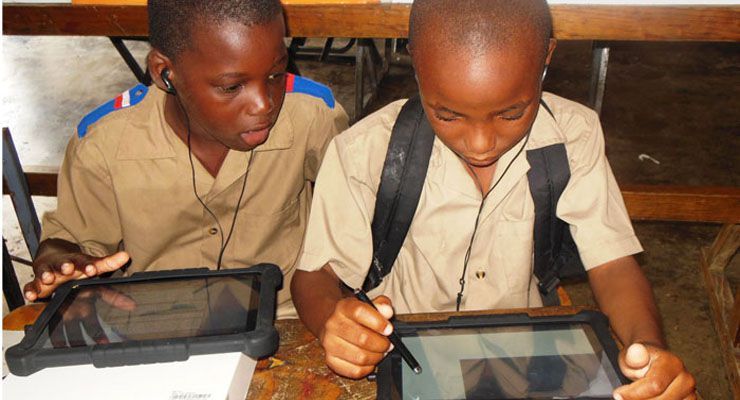
COVID-19 and its devastating effect on the education industry, more than anything else, has revealed the scandalous system of education apartheid that exists in our country.
The quite proper closure of schools by the Government of Jamaica (GOJ) in order to protect our children and the adult members of their households from the spread of COVID-19 has resulted in the complete cessation of teaching and learning as it existed up to 13 March 2020. It is now quite clear, that absent an available vaccine, schools, the attendance of children and teachers, and the teaching and learning process as previously practised in Jamaican schools has changed forever.
Many schools have since sought to practice some form of remote/ distance/ virtual learning. Teachers have worked hard to adjust their lesson plans, to change their pedagogy, and to develop the new and different skills required to practice their craft by remote/distance/ virtual means. The major challenge facing a significant number of teachers and a staggeringly huge number of students is the absence of data.
Data, that wonderful, unseen, new age scientific good, is the bedrock of 21st century societies. Every aspect of modern society demands it in order to thrive. Commerce, banking, media, entertainment, and now education cannot function optimally without citizens and consumers having access to large amounts of data.
Once Jamaican schools wisely decided to transition to remote/distance/ virtual learning it exposed the unequal and unjust nature of our country. Upper-class children and most middle-class children transitioned smoothly. Many children already had their own devices and had WiFi at home. Poor, rural, and inner-city children suffered as many had neither, and those who had devices, whether a smart phone or otherwise, were and are data-challenged. There were many horror stories of parents having to make a choice between the purchase of food or data for the children. The obvious choice was made — food!
GOJ’s well-meaning, well-intentioned and useful C.A.R.E.S. product could only be accessed by way of an online application. Many businesses transitioned to an online model to try to reduce the haemorrhaging of sales. Banks expanded their online platforms. All of this relies on citizens having access to data. Data in Jamaica is expensive. It is as simple as that. Its costliness deprives most of our citizens of access to it.
It is my considered view that in the 21st century access to data is obligatory.
Data is a public good. Societies are not static. In 19th century Jamaica, street lighting was not readily available and was not considered a public good. By the close of the 20th century it is unarguable that street lighting in Jamaica is a public good that GOJ is called upon to produce for the benefit of all its citizens.
A public good in the classic sense has two characteristics. There must be both non-rivalry and non-excludability. That is, in the case of the former concept, the consumption of the good by one citizen does not reduce the amount of the good available to other citizens. In the case of the latter concept, it is impossible to publicly provide the good without it being possible for others to enjoy the same good. In that regard, the provision of street lighting by the GOJ is a classic example of a public good.
It is my view that the provision of data by way of publicly available WiFi is a public good which GOJ must make available to all its citizens. If CARICOM Prime Ministers are prepared to accept that West Indies cricket is a public good, then certainly there can be no argument that the provision of data to their citizens is also a public good.
I fully understand that the telecoms make a fortune out of the sale of data. But so too does the sole public supplier of electricity, the Jamaica Public Service Company limited (JPS). GOJ pays JPS to provide street lighting. GOJ ought to pay the telecoms for the provision of data through free WiFi. This is a win-win situation for citizens, the providers of data and the GOJ.
It is my view that the model used by the GOJ to pay for street lighting is the model that ought to be used to pay for the provision of data by free WiFi, that is by property taxes. Property taxes in Jamaica are relatively modest as they are calculated based on the unimproved value of land. The land is valued every 10 years by the National Land Agency (NLA). In 2018 GOJ collected J$8.47 billion in property taxes (OECD statistics).
Although not having any scientific basis for so stating, I rather doubt that any well-thinking Jamaican will object to a small increase in property taxes in order to ensure that all of its citizens have full access to data capped at a certain usage per month. This will ensure that their children have access to data for teaching and learning purposes.
Does the technology exist to put a cap on the amount of data that any one IP address can access from the GOJ free WiFi? I do not know, but I think it is certainly worth exploring.
Another option might be to give a monthly voucher, redeemable from the telecoms provider for a stated amount of data to each registered citizen. Citizens would then be free to use it for their educational or other purposes.
As we all strive to bring some level of equity to our society, there ought not to be any limits to our lawful creativity.




Excellent article and ought to be elevated to a national discussion, its not beyond our imagination to conceptualise and implement in order to unleash our innate creativity so often misdirected.
This is an excellent suggestion for public discussion and adoption. It deserves to be more widely circulated.